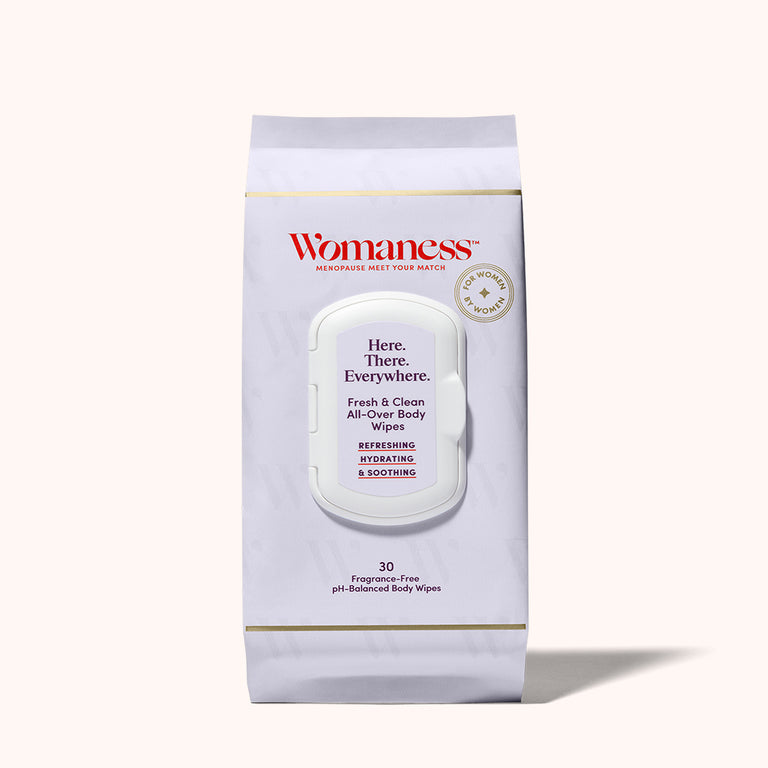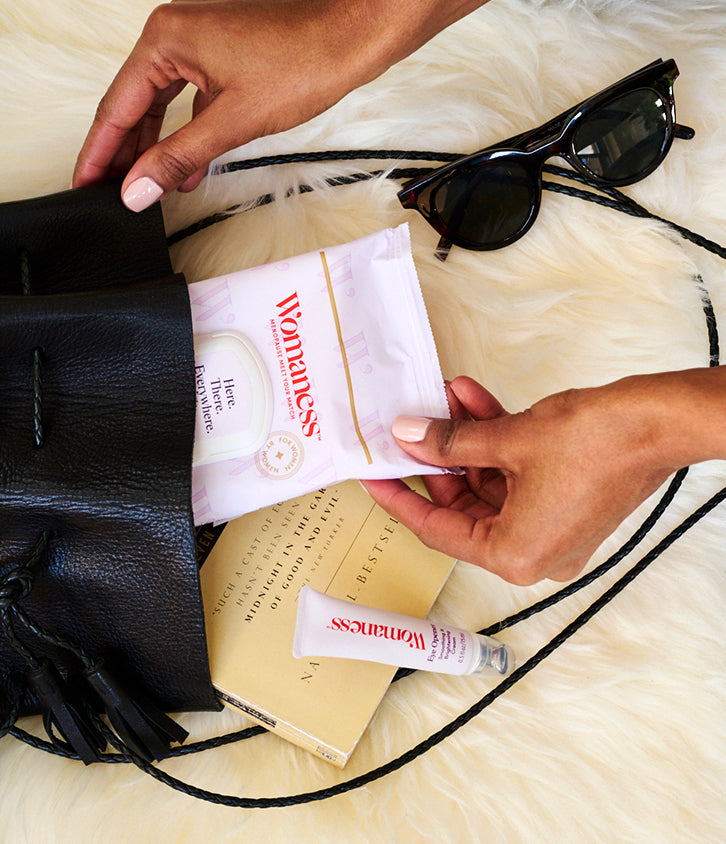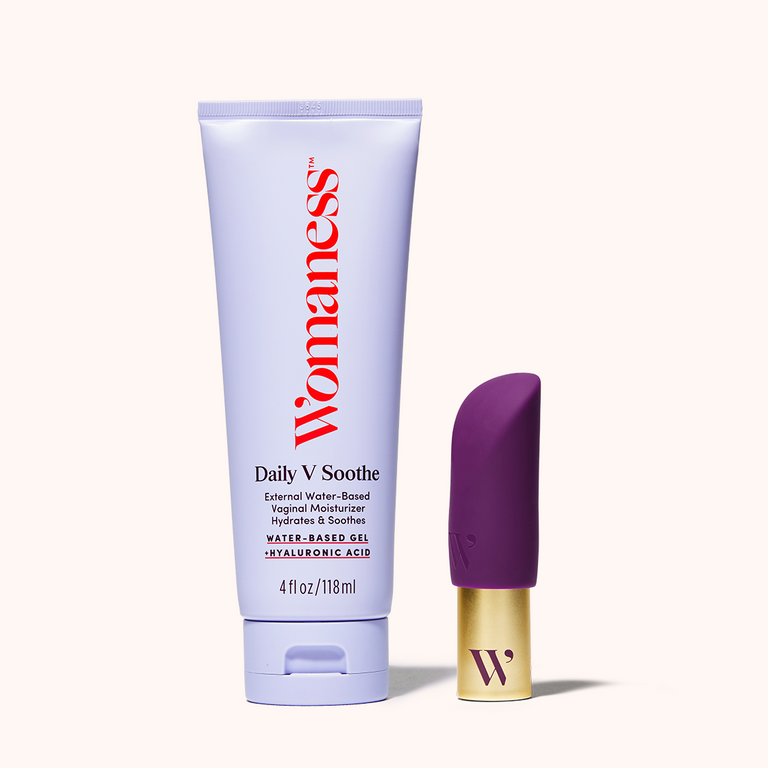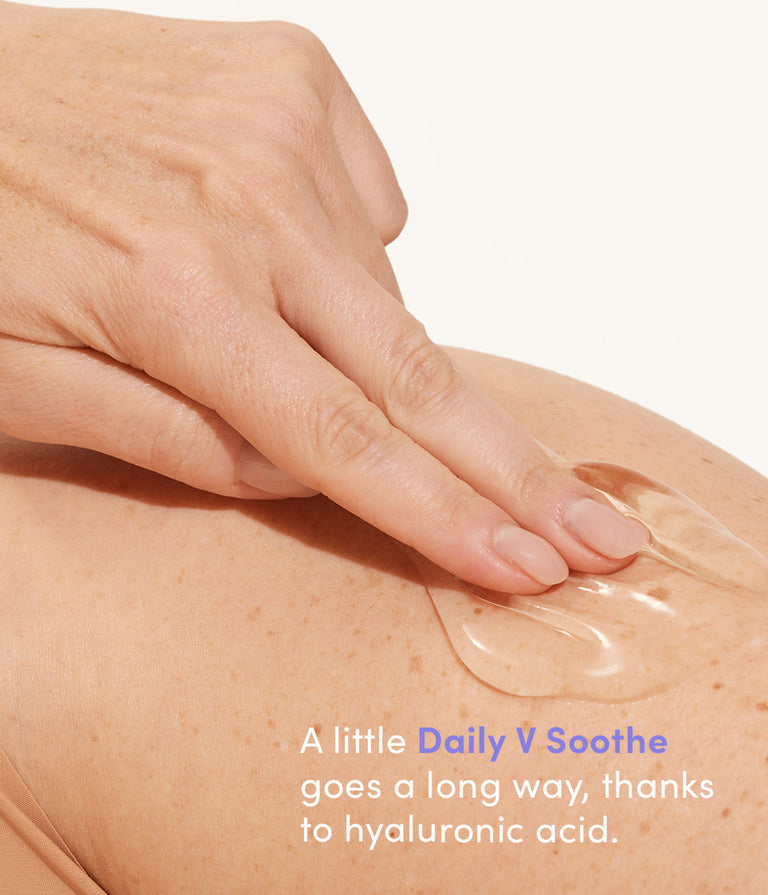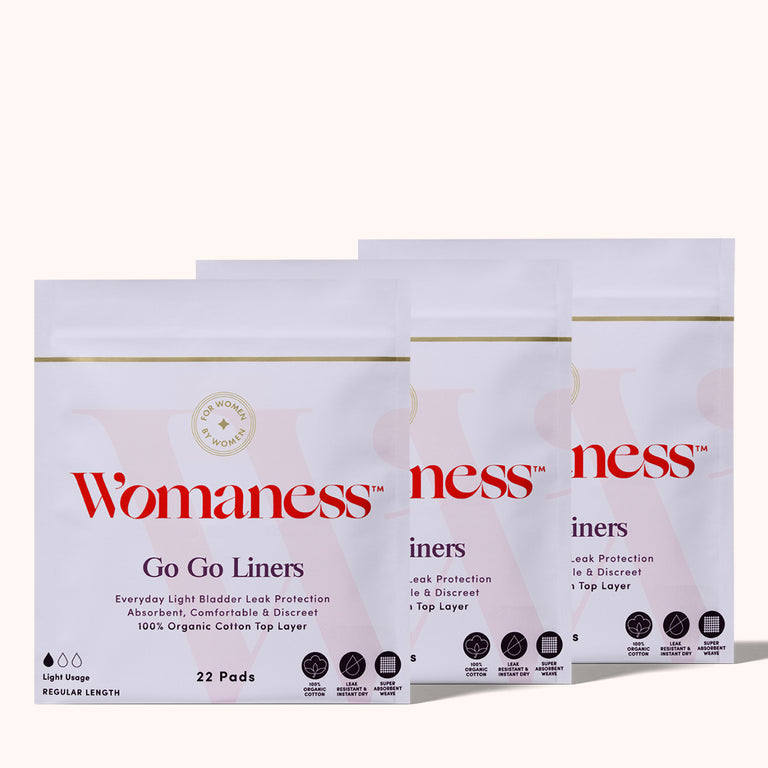By Julia Walker, RN, BSN 5-Minute Read
Julia Walker, RN, BSN is a women’s health nurse, writer, and member of the perry team. Perry connects and supports perimenopause warriors in a safe space. To build friendships, learn, and laugh. The moment you think "WTF, could this be menopause?"—join our sisterhood!
Let’s cut to the chase: Having a scent is normal. We all have one.
There certainly is stigma around vaginal odor that makes it seem like it’s gross and unhealthy. But, contrary to what many “feminine hygiene” brands would say, using products to get rid of your scent can actually make your vagina unhealthy.
Furthermore, your scent is the perfect tool for helping you check in with your vaginal health. So, instead of masking your scent, learn what is normal for you so that you know when something is not normal. Here are the different scents you may encounter and what they might mean for your vagina.
“Using products to get rid of your scent can actually make your vagina unhealthy.”
What Causes Odor in the First Place?
The vagina is home to a diverse number of bacterial species. Each woman has her own bacterial flora that can change based on her diet, health status, hormones, etc. However, vaginal bacteria are usually kept in check by sticking within the natural pH range of 3.8-4.5.
The type and amount of bacteria living in your vagina are some of the biggest determinants of your scent. However, sweat glands and pheromones can also influence it, as can other factors like:
-
Where you are at in your menstrual cycle
-
Hygiene habits
-
Diet
-
Underwear style and fabric
-
Stress
-
Penetrative sex (the pH of semen has a more basic pH than the vagina, so it can change the way you smell in the hours and days after intercourse)
The Different Types of Vaginal Odors
Fermented:
Many women find their vagina smells fermented. The cause of this odor is from a very beneficial bacteria called lactobacilli. This type of bacteria helps to keep your pH in check and keeps harmful bacteria out. If you have a smell that mimics the scent of fermented dairy products or beer, it likely means that you have a high presence of this bacterial species.
Sweet:
Also a common scent, a sweet odor also indicates a high presence of healthy bacteria and is generally no cause for concern unless it seems alarmingly different to you or you have other concerning symptoms like itching or burning.
Metallic:
Most of us associate a metallic smell with blood due to the high presence of iron. Thus, if you have a metallic scent, it likely means there is blood somewhere in your vagina or uterus. As we all know, this may be a typical scent during your period and can also occur after sex.
B.O.:
Sweat glands surround the vulva (the part that you can actually see). So, if you have a skunky or B.O. smell, it is likely that those sweat glands are working a little harder than normal. Exercise, stress, anxiety, and hormones can all influence sweat production in the pelvic region.
Fishy:
People often associate a fishy smell with vaginas. Here again, this is usually the result of bacteria. Some women may naturally have a slightly fishy scent that is perfectly normal for them. However, if the odor becomes more pronounced or you have just recently developed a fishy scent, it may be the result of an overgrowth of anaerobic bacteria that cause bacterial vaginosis. It may even be a parasite known as trichomoniasis, which is transmitted sexually.
When anaerobic bacteria or trich take over, you will likely know it by other alarming symptoms like itching, burning, and discharge. You will need to see your gynecologist for treatment.
Rotten:
Having a rotten or pungent smell is not a common scent and usually means that something is inside the vagina. For example, forgotten tampons can cause a rotten smell. Indeed, it can lead to a life-threatening condition called toxic shock syndrome, which requires immediate medical evaluation.
What To Do If Your Odor Is Abnormal
If you have an abnormal scent, it's essential to consult your doctor as it may indicate that you have an infection. Aside from an odor, you will want to watch for other signs of infection, including:
-
Pain
-
Itching
-
Burning
-
Vaginal bleeding that is unrelated to apparent causes like rough/dry sex or your period
-
Abnormal discharge that may have a cottage-cheese texture or is an unusual color
Tips for Keeping Things Healthy Down There
-
Less is often more when it comes to keeping your vaginal tissues healthy. Indeed, the vagina is very good at cleaning itself, so you should avoid practices like douching, using perfumes, or washing with anything but mild soap and water.
-
Wear breathable underwear made of cotton to keep moisture from accumulating. And, if you want to be an overachiever, avoid wearing panties at night.
-
Change your underwear and clothing after a sweaty workout.
-
Watch your sugar intake, as that may encourage yeast overgrowth.
-
Change pads, tampons, and other menstrual products regularly.
-
Be consistent with your annual check-ups with your health provider.
Do Vaginal Wipes Help with Vaginal Odor?
Vaginal wipes or feminine wipes are marketed to help maintain vaginal hygiene and eliminate or reduce vaginal odor. However, as mentioned above, it is important to note that vaginal odor can be normal and may change in intensity throughout the menstrual cycle. Mild vaginal odor is generally not a cause for concern, but it can be affected by factors such as sweat, menstrual blood, sexual activity, and certain foods.
Using vaginal wipes can provide a temporary improvement in odor by removing excess sweat, fluids, or bacteria from the external genital area. However, they may not address underlying causes of vaginal odor, such as an infection or imbalance in the vaginal microbiota. Wipes are good as a temporary solution or a helpful soothing, cooling treatment. It’s important to look at the ingredients included in the wipe to ensure they wont make the problem worse.
Scented wipes, in particular, can sometimes disrupt the pH of the vagina and can cause increased irritation and discomfort. Experts often warn against using scented wipes. Scent can disrupt the natural pH balance of the vagina and lead to irritation, itching, or bacterial infections. The vagina has a natural self-cleaning mechanism, and using gentle soap and water for external cleansing is usually sufficient.
"Here. There. Everywhere. wipes by Womaness are fragrance and alcohol free to help balance pH levels of the vagina.”
Womaness has a safe, effective, fragrance-free wipe: Here. There. Everywhere. wipe. This soft, biodegradable wipe has a high-level blend of naturally beneficial ingredients like rosewater, cranberry fruit, and aloe leaf extracts. You can gently and easily use it as a vaginal wipe or on any place that needs cleansing, gets too hot, or just needs refreshing. The wipe can help with vaginal odor and ensure more comfort. Here. There. Everywhere. wipes are fragrance and alcohol free to help balance pH levels of the vagina.
Key Ingredients Explained:
CRANBERRY FRUIT EXTRACT
Derived from the seed of the North American cranberry and noted for its protective antioxidant ability, this natural extract helps soothe your skin.
ROSEWATER
A mild astringent that refreshes, regenerates, and revitalizes your skin, antioxidant rosewater can help soothe redness, help improve the skin's barrier, and have hydrating, softening, and healing effects.
ALOE LEAF EXTRACT
From the aloe vera plant, this extract has been celebrated for centuries for its moisturizing, emollient, properties for skin.
Here. There. Everywhere. wipes contain absolutely no estrogen, phytoestrogen, or added hormones. They are free from animal-derived ingredients, parabens, phthalates, sulfates, artificial colors, formaldehyde, and mineral oils.
More Health & Wellness
What's Happening Here? Vaginal Dryness
Ingredient Spotlight: Hyaluronic Acid
Sex in Menopause: What to Expect & How to Make It Great



